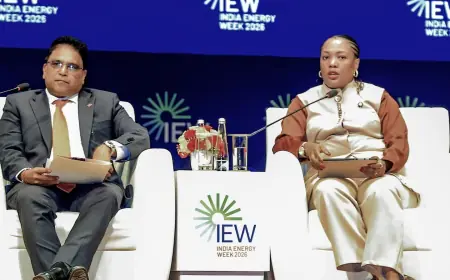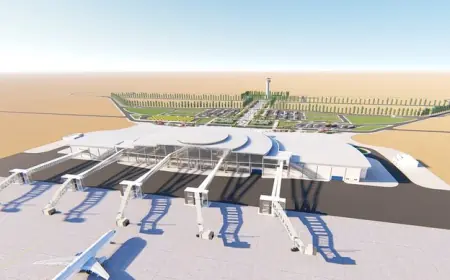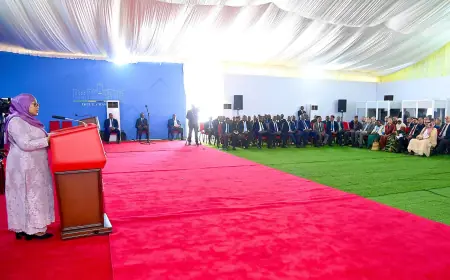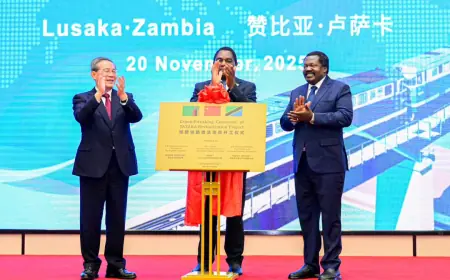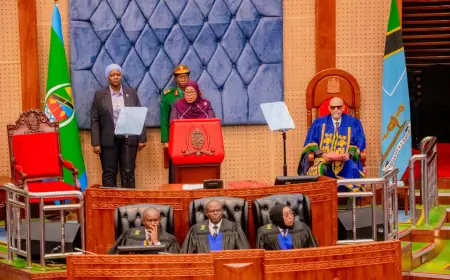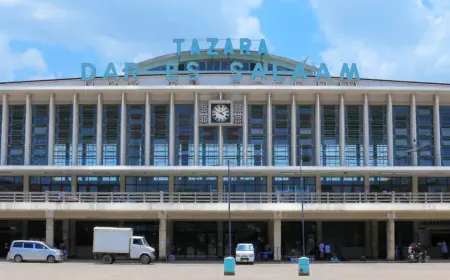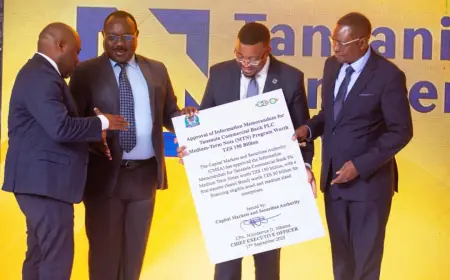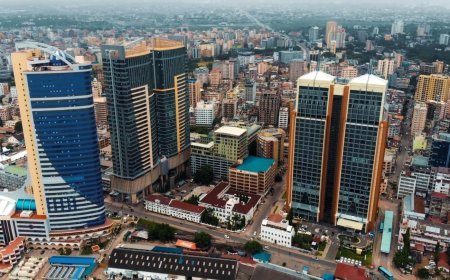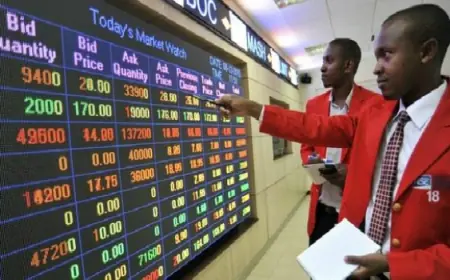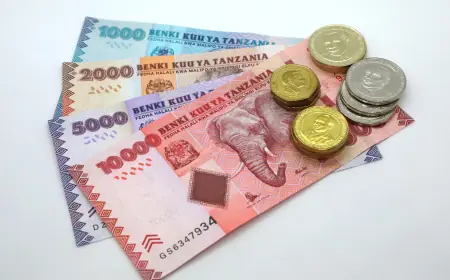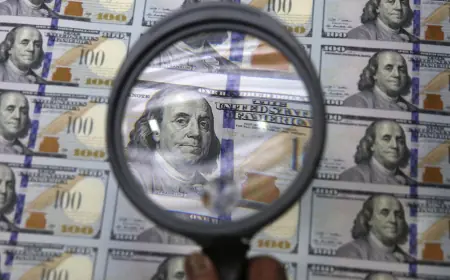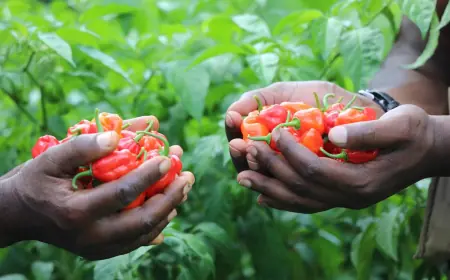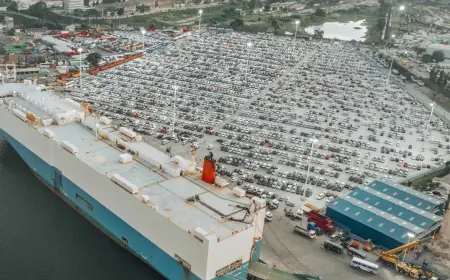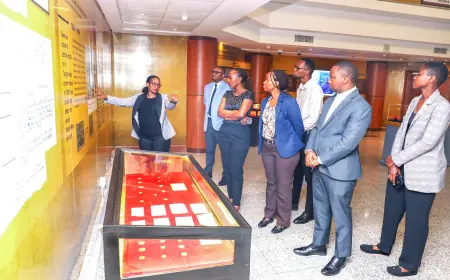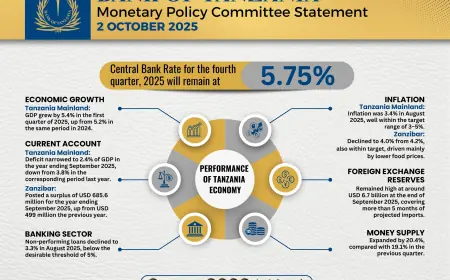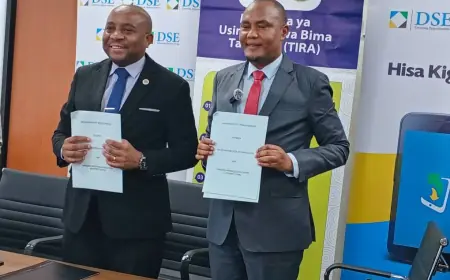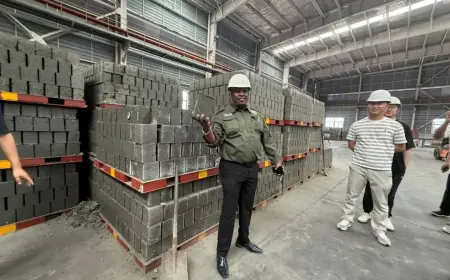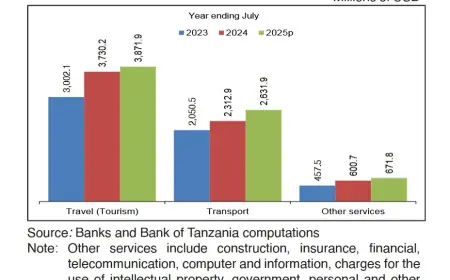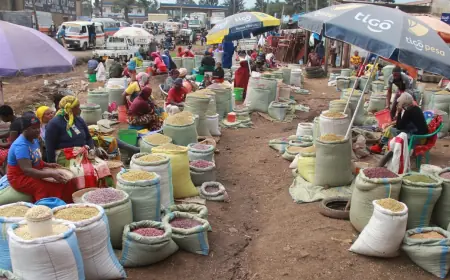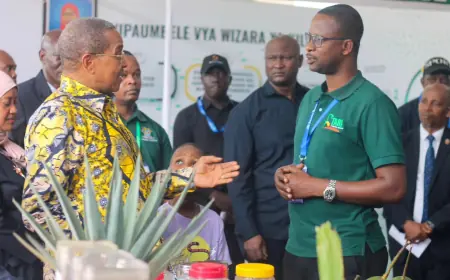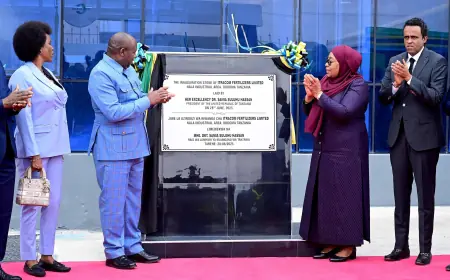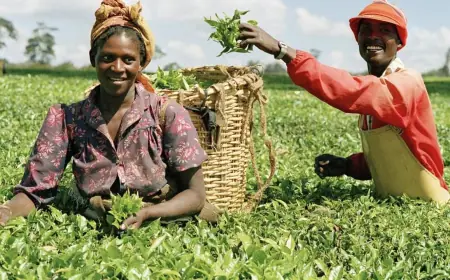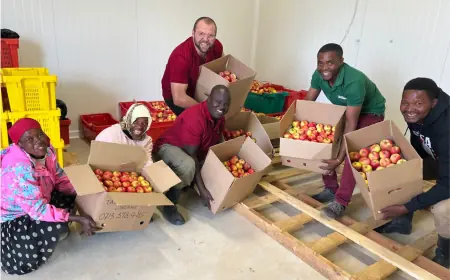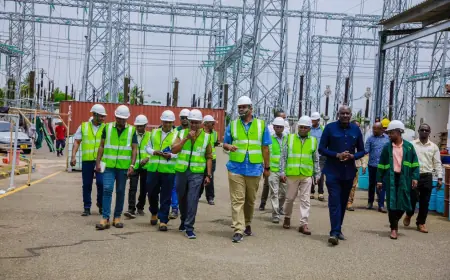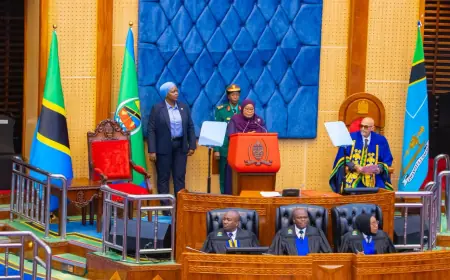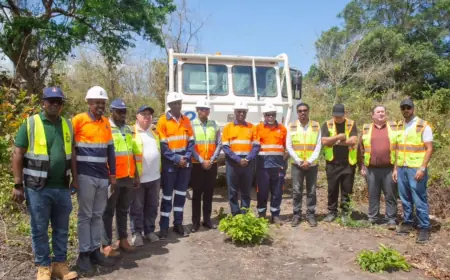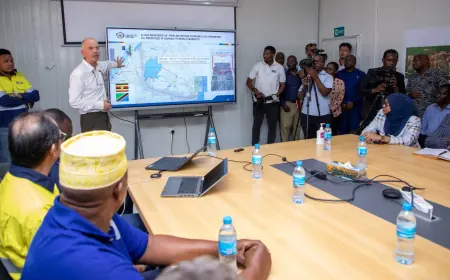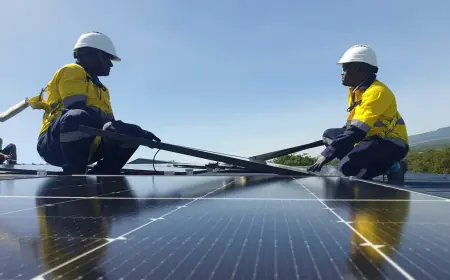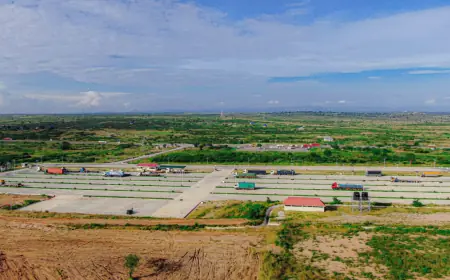Tanzania tables Sh56.49 trillion budget, focusing on domestic revenue, strategic investments
Presenting the estimates in Parliament on June 12, 2025, the Minister for Finance, Dr Mwigulu Nchemba, said the budget aligns with the East African Community’s regional focus on inclusive economic transformation through domestic resource mobilisation and job creation

Dodoma. The government yesterday tabled a Sh56.49 trillion budget for the 2025/26 financial year, outlining a fiscal plan anchored on robust domestic revenue mobilisation, increased investment in strategic sectors, and enhanced public service delivery.
Presenting the estimates in Parliament on June 12, 2025, the Minister for Finance, Dr Mwigulu Nchemba, said the budget aligns with the East African Community’s regional focus on inclusive economic transformation through domestic resource mobilisation and job creation.
“This budget is designed not just to sustain growth but to transform livelihoods by leveraging internal strengths and building resilience across critical sectors,” Dr Nchemba said.
Funding Structure and Economic Targets
The government intends to finance the budget through domestic revenues amounting to Sh40.47 trillion, grants totalling Sh1.07 trillion, and loans worth Sh14.95 trillion.
Of the domestic revenue, Sh32.31 trillion will be generated through tax collection, Sh6.48 trillion from non-tax sources, and Sh1.68 trillion from Local Government Authorities.
Borrowing will include Sh6.27 trillion from domestic sources and Sh8.68 trillion from external lenders.
Dr Nchemba noted that allocations include Sh9.17 trillion for salaries and pensions, Sh5.58 trillion for the procurement of goods and services, and Sh6.49 trillion for interest payments on public debt.
A further Sh22.17 trillion has been earmarked for subsidies to government institutions, public corporations and LGAs, while Sh7.72 trillion will go toward repaying domestic and external debt.
The government aims to raise the real GDP growth rate to 6.0 percent in 2025, up from 5.5 percent in 2024, while maintaining inflation within a range of 3.0 to 5.0 percent in the medium term.
Domestic revenue is projected to reach 16.7 percent of GDP, up from the current 15.8 percent, while tax revenue is expected to hit 13.3 percent of GDP compared to 12.8 percent this year.
Budget Priorities and Sectoral Focus
Key priorities for 2025/26 include completing flagship development projects, stimulating high-impact productive sectors, strengthening human capital through investments in social services, and enhancing the business environment to attract more private sector participation.
The budget also proposes significant reforms aimed at discouraging non-essential imports, supporting local production, and stimulating grassroots income-generating activities. Special attention has been given to smallholder farmers, livestock keepers, and clean energy users.
Reforms in Domestic Revenue Collection
To strengthen revenue systems, the government will enhance public education on the use of Electronic Fiscal Devices (EFDs) and improve digital infrastructure for tax collection.
The TAUSI system will be upgraded to integrate revenue from all LGAs, while ministries, departments, and agencies will be required to submit dividends and contributions promptly.
Dr Nchemba said these measures would be implemented alongside ongoing regulatory reforms under the Blueprint for Regulatory Reforms to Improve the Business Environment.
Comprehensive Tax Reforms

A raft of tax changes has been proposed to stimulate production, attract investment, and promote fairness in the tax regime. The reforms are expected to generate additional revenue of Sh4.26 trillion.
Among the notable proposals is a VAT exemption on certain pesticides (HS Codes 3808.61.00, 3808.62.00, 3808.69.00), aimed at reducing agricultural production costs.
Reinsurance transactions between insurance and reinsurance firms will also be exempted from VAT, a move intended to improve competitiveness in the sector.
A one-year VAT zero-rating has been proposed for textiles made from domestically grown cotton to boost the local garments industry.
Locally produced fertiliser will benefit from a three-year VAT zero-rating, while locally produced edible oil from Tanzanian-grown seeds will be exempt from VAT for an additional year beyond June 2025.
Further, VAT will be removed from agricultural tools such as tractor tyres, dam liners, forks, rakes, and axes, subject to approval by the Agriculture Minister.
Conversely, VAT exemptions on gaming supplies and bitumen (HS Codes 2713.20.00 and 2715.00.00) will be withdrawn, with the latter expected to bring in Sh85.61 billion.
A VAT exemption has also been proposed for locally printed newspapers and natural gas used in refuelling stations for vehicles.
To encourage adoption of clean cooking solutions, VAT will be exempted on gas cylinders (HS Code 7311.00.10) and carbon removal equipment (HS Code 8417.80.00).
Digital tax administration will also be strengthened by formally recognising online marketplaces and digital marketing platforms as digital service agents.
Agriculture, Livestock and Fisheries Relief
Small-scale farmers are among the biggest winners in the proposed budget, benefiting from tax exemptions that aim to lower production costs and encourage productivity.
“By zero-rating inputs such as fertilisers and agrochemicals, we are easing the burden on farmers and ensuring stable food supply and prices,” Dr Nchemba said.
In the livestock sector, the government has proposed to cut the fee for transporting cattle through border markets from Sh31,000 to Sh30,000 per cow.
The fee for goats and sheep will reduce from Sh7,000 to Sh6,500, a move meant to support pastoralists and cross-border trade.
Significant changes have also been introduced in the fisheries sector.
The import duty on fin fish, excluding Tilapia, will be reduced from $2.5 per kilogramme to Sh1,300.
The government expects this measure to boost local fish processing while supplementing domestic fish consumption.
“These interventions are structured to make livestock and fisheries more viable for local and export markets,” Dr Nchemba said.
Clean Energy Transition
The 2025/26 budget lays strong emphasis on clean energy adoption.
VAT will be removed from natural gas supplied to CNG stations for use in motor vehicles to promote the shift from petroleum fuels to cleaner alternatives.
Dr Nchemba said the government is committed to promoting eco-friendly fuels and reducing carbon emissions.
To support this, VAT exemptions will apply to gas tanks and carbon capture equipment used to produce alternative charcoal.
However, these clean energy incentives are expected to reduce government revenue by Sh1.91 billion.
To compensate, a new excise duty of Sh22,000 per tonne will be introduced on carbon emissions from coal and natural gas, with projected collections of Sh374.15 billion.
The government has also removed excise duty on un-denatured ethyl alcohol used for non-alcoholic purposes like food flavouring, aimed at lowering input costs for manufacturers.
Dr Nchemba also reported progress on the Liquefied Natural Gas (LNG) processing project, with active exploration ongoing in areas such as Songo Songo West, Mnazi Bay North, Eyasi-Wembere, and Blocks 4/1B and 4/1C.
The government is also working to expand the national gas distribution network and promote the use of compressed natural gas (CNG) in vehicles.
National Grid and Energy Access
All regions have now been connected to the national power grid, marking a milestone in the country’s energy development.
“This is a pivotal achievement in ensuring reliable power supply for both domestic and industrial use,” Dr Nchemba told Parliament.
Outlook
The Finance Minister expressed confidence that the proposed fiscal measures will spur job creation, attract investments, and enhance Tanzania’s export base.
“This budget is a reflection of our resolve to reduce dependency, unlock productivity, and create meaningful economic opportunities for every citizen,” he said.
If passed by Parliament, the new budget and tax measures will come into effect on July 1, 2025.
What's Your Reaction?
 Like
1
Like
1
 Dislike
0
Dislike
0
 Love
0
Love
0
 Funny
0
Funny
0
 Angry
0
Angry
0
 Sad
0
Sad
0
 Wow
0
Wow
0
